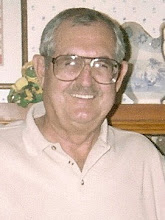I always get misty this time of year, because one of my duties when I was a kid back in Maude, Okla., was to take care of my Aunt Lucy's Rhubarb bed. All of my family were big Rhubarb pie eaters and Aunt Lucy, in addition to being a great pie maker was also a Pott County Fair Blue Ribbon Winner with her Rhubarb/Watermelon preserve.
I don’t get much Rhubarb these days. Knott’s Berry Farm use to serve it, but they turned it into a sweet, watery sauce that is substituted for a salad with their fried chicken and biscuits. I haven’t been there in years, so I don’t know if they still have it on the menu.
Rhubarb is one of a handful of perennials -- like horseradish, asparagus and dandelion -- that make a tasty and nutritious harvest in exchange for a minimum of work. Once established in its bed, Rhubarb sprouts vigorously and consistently throughout late spring and summer. Common pests and diseases that harm other garden plants leave Rhubarb alone. Pioneers could plant it, forget it, and get on with the business of taming the wilderness. When they were ready for the first pie of spring, so was Rhubarb.
So consequently each fall I would thin out the bed and replant any plants that had died or were over- harvested. My biggest problem with the Rhubarb bed was keeping Grandpa’s hounds out of it. For some reason the hounds just loved to leave their scent on the plants. So I devised a special fence to keep them out. Before my Uncle Everett would eat any Rhubarb pie at our house he would have to be reassured that I kept the dogs out of the bed.
Rhubarb can be used for many dishes, but pie is rhubarb’s manifest destiny. The basic pie recipe calls for nothing more than chopped Rhubarb stalks, sugar, and flour mixed and poured into a pie crust. Dot the mixture with butter, lay more crust over the top and bake.
Refinements include first boiling the stalks to soften them and eliminate stringiness, then adding lemon juice. In Wisconsin, I understand, where they are partial to diary products, pie makers abide by the adage that says a great Rhubarb pies must contain a full quarter-pound stick of butter.
Indiana pie makers favor custard-style pie with a couple of eggs added to the mixture. In Illinois they’ve been known to compromise their integrity and their waistlines by adding an equal measure of fresh-picked strawberries to the Rhubarb in the pie. Even more shameless are the Minnesota’s who skirt the bounds of decency by discarding the pie crust and adding gelatin, heavy cream, and vanilla to transform plain old pie into Rhubarb mousse. Here in California, the pie makers tend to bake a mean Rhubard/Strawberry pie that I really enjoy and recommend.
Aunt Lucy always used the basic recipe. Our family has a saying -- you can have any kind of pie you want -- just so it’s Rhubarb.
